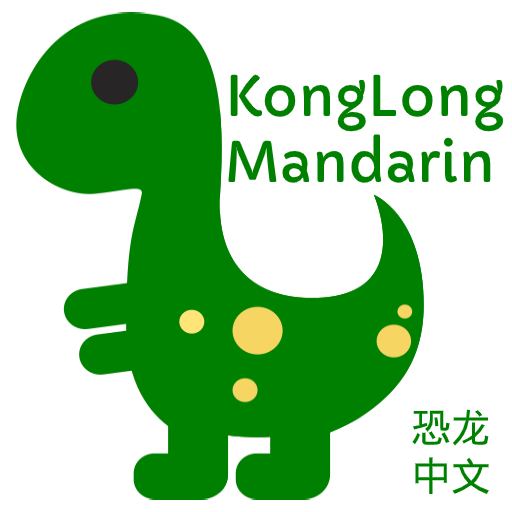Mandarin transcript (in pinyin and characters) for Peppa Pig S01E04 “Polly Parrot” Part 1:
- yīngwǔ bōlì
- pèiqí hé tā de jiārén qù kàn zhū yéye hé zhū nǎinai le
- nǐhǎo nǎinai, nǐhǎo yéye
- nǐmenhǎo, wǒde xiǎo bǎobèir men, kuàidiǎn jìn láiba
- yǒu gè jīngxǐ gěi nǐmen
- shì shénme jīngxǐ ā?
- wǒmen yǎng le zhī xīn chǒngwù
- nǐmen cāicāi kàn shì shénme
- shì kǒnglóng ma
- bù, wǒmen yǎng de chǒngwù búshi shénme kǒnglóng
- kuài jìnlái kànkan
- 鹦鹉波利
- 佩奇和她的家人去看猪爷爷和猪奶奶了
- 你好奶奶,你好爷爷
- 你们好,我的小宝贝儿们,快点进来吧
- 有个惊喜给你们
- 是什么惊喜啊?
- 我们养了只新宠物
- 你们猜猜看是什么
- 是恐龙吗
- 不,我们养的宠物不是什么恐龙
- 快进来看看
The video player above requires Javascript to run properly. You can binge-watch the full video on the official Peppa Pig Chinese Dub Youtube channel.
Show Notes for Learn Chinese with Peppa Pig Season 01 Episode 04 Part 1
yīngwǔ bōlì
鹦鹉波利
Polly Parrot
- 鹦鹉 = yīngwǔ, parrot
- 波利 = bōlì, Chinese transcription of Polly
pèiqí hé tā de jiārén qù kàn zhū yéye hé zhū nǎinai le
佩奇和她的家人去看猪爷爷和猪奶奶了
Peppa Pig and her family visited Grandpa Pig and Granny Pig.
- 佩奇 = pèiqí, the Chinese name of Peppa Pig
- 和 = hé, and, together with.
- 她 = tā, she.
- 她的 = tā de, her.
- 家 = jiā, family.
- 人 = rén, person, people.
- 家人 = jiārén, family members
- 去 = qù, go
- 看 = kàn, see, visit
- 猪爷爷 = zhū yéye, Granpa Pig
- 猪奶奶 = zhū nǎinai, Granny Pig
- 了 = le, usually indicating it happened in the past, but it’s often used loosely to indicate the status change from doing something to doing another thing.
nǐhǎo nǎinai, nǐhǎo yéye
你好奶奶,你好爷爷
Hello grandma, hello grandpa.
- 你好 = nǐhǎo, hello
- 奶奶 = nǎinai, paternal grandmother. I call my maternal grandmother 姥姥 = lao3lao3.
- 爷爷 = yéye, paternal grandfather. I call my maternal grandpa 姥爷 = lao3ye2
nǐmenhǎo, wǒde xiǎo bǎobèir men, kuàidiǎn jìnlái ba
你们好,我的小宝贝儿们,快点进来吧
Hello, my dears, come in quick.
- 们 = men, indicating plural
- 你们 = nǐmen, you (plural)
- 我的 = wǒde, mine/my
- 小宝贝儿 = xiǎo bǎobèir, my dear
- 快点 = kuàidiǎn, quick, you can also use 快 = kuai4 on its own in this sentence
- 进来 = jìnlái, come in
yǒu gè jīngxǐ gěi nǐmen
有个惊喜给你们
Have a surprise for you.
- 有 = yǒu, have
- 个 = gè, the unit word (for surprise), a pretty general measure word for many objects. 一个 = yi2ge4, ne of …, one is omitted in this case (only if you only have one of something, you’d have to explicitly say the number count otherwise).
- 惊喜 = jīngxǐ, surprise
- 给 = gěi, give / for you
shì shénme jīngxǐ ā?
是什么惊喜啊?
What’s the surprise?
- 是 = shì, am/is/are
- 什么 = shénme, what
wǒmen yǎng le zhī xīn chǒngwù
我们养了只新宠物
We have a new pet.
- 我们 = wǒmen, we/us
- 养 = yǎng, raise (a pet, a kid, etc)
- 只 = zhī, the unit word for many animals. 一只 = yi2zhi1, one of …, one is omitted in this case (only if you only have one of something, you’d have to explicitly say the number count otherwise).
- 新 = xīn, new
- 宠物 = chǒngwù, pet
nǐmen cāicāi kàn shì shénme
你们猜猜看是什么
Guess what it is
- 猜猜 = cāicāi, guess. You can also just use 猜 = cai1. Repeating the word makes the sentence sound more casual. Also, read my deep dive post on repeating verbs in Chinese!
- 看 = kàn, typically means see, but I don’t think it adds any meaning here. This is pretty colloquial. The usage of 看 after a verb is often associated with prompting somebody to try something such as 试试看 = Shì shì kàn.
- An easier version of this sentence is simply 你们猜是什么 = Nǐmen cāi shì shénme
shì kǒnglóng ma
是恐龙吗
Is it a dinosaur?
- 恐龙 = kǒnglóng, dinosaur, George’s favorite animal!
bù, wǒmen yǎng de chǒngwù búshi shénme kǒnglóng
不,我们养的宠物不是什么恐龙
No, the pet we have is not a dinosaur.
- 不 = bù, no. Learn more about how to say No in Chinese!
- You’d notice that 什么 = shénme seems to be extra here because 我们养的宠物不是恐龙 = wǒmen yǎng de chǒngwù bùshì kǒnglóng, is a complete sentence already. The additional 什么 indicates that Grandpa Pig thinks that it’s ridiculous to think their pet would be a dinosaur.
Kuài jìnlái kànkan
快进来看看
Come in quick and see.
- 快进来 = Kuài jìnlái is very similar to 快点进来 used earlier. I’d say 快进来 has a bit stronger sense of urgency since you can say it faster with one less character lol.
- 看看 = kànkàn, to see, check out my post on repeating verbs in Chinese!
